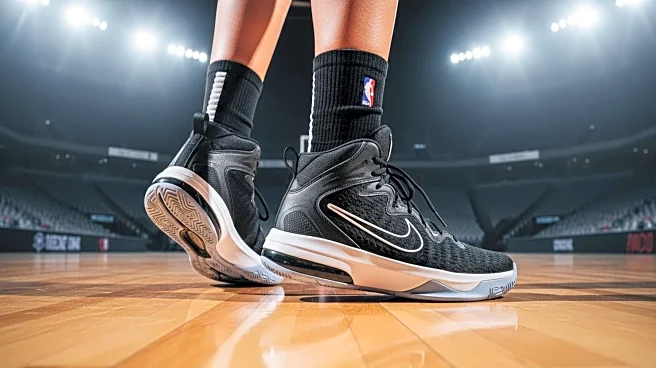What's Happening?
Napheesa Collier, a star player for the Minnesota Lynx, suffered a Grade 2 tear of three ligaments in her left ankle and a muscle in her shin during Game 3 of the WNBA semifinals against the Phoenix Mercury. The injury occurred in the final minute of the game when Mercury's Alyssa Thomas stole the ball from Collier, leading to an awkward bend of Collier's ankle. The incident has sparked criticism of the officiating in the WNBA, with Lynx head coach Cheryl Reeve expressing frustration over the lack of a foul call and calling for changes in league leadership regarding officiating standards.
Why It's Important?
Collier's injury and the subsequent criticism of WNBA officiating highlight ongoing concerns about the quality and consistency of refereeing in the league. The incident has brought attention to the need for improved officiating standards to ensure player safety and fair play. The criticism from Reeve and other league members underscores the importance of addressing these issues to maintain the integrity of the sport and protect players from preventable injuries. The situation also reflects broader challenges in professional sports regarding transparency and accountability in officiating.
What's Next?
The WNBA may face increased pressure to review and improve its officiating standards in response to the criticism following Collier's injury. Stakeholders, including players, coaches, and league officials, may engage in discussions to implement reforms that enhance the quality of refereeing and ensure player safety. The league's leadership may need to address these concerns to prevent further incidents and maintain the trust of players and fans.
Beyond the Headlines
The incident involving Collier's injury and the subsequent criticism of officiating in the WNBA highlights broader issues of transparency and accountability in professional sports. The situation may lead to long-term changes in how the league operates, including the implementation of policies that prioritize player welfare and ensure fair play. The criticism from Reeve and other league members reflects the ongoing struggle for improved standards in officiating, which could catalyze discussions on league leadership and the need for reforms.









